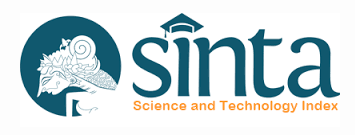KONSEP PERIMENOPAUSE DAN CARA MENYIKAPINYA MENURUT ZAKIYAH DARAJAT
Abstract
Every woman has different perimenopause times, some women experience it early and some are even late. The tendency of women who have perimenopause and menopause has shifted towards a relatively young age from time to time, especially in Europeans. The way they responded to the perimenopause period was different, Some women are giving up on reality and circumstances, and others also try not to discuss it and there is even a group of women who reject the situation. From this attitude of rejection, there are various problems that are quite serious and affect the physical and psychological. The turmoil of a perimenopause woman's feelings will greatly affect her condition in the internal family and the social community. This research aims to analyze the concept of perimenopause and create Islamic guidance and counseling programs for adults, especially Muslim women who are heading or are in the perimenopause period in order to provide solutions to physical symptoms and Islamically psychology. The research methods used in this writing are qualitative methods with library research (literature research) and field research (field research) approaches. Data sources in the form of primary data and secondary data are obtained from literature and field studies in the form of observations, documents, interviews, books, articles, online newspapers, and others related to research themes.
Once an article was published in the journal, the author(s) are:
granted to the journal right licensed under Creative Commons License Attribution that allows others to share the work with an acknowledgment of the work's authorship. permitted to publish their work online in third parties as it can lead to wider dissemination of the work. continue to be the copyright owner and allow the journal to publish the article with the CC BY license receiving a DOI (Digital Object Identifier) of the work.





